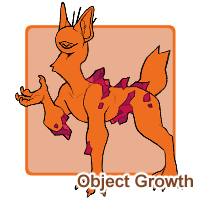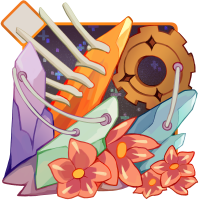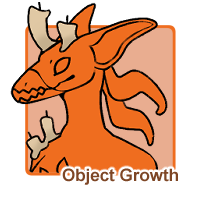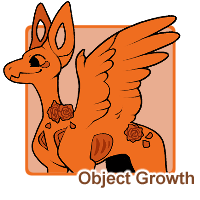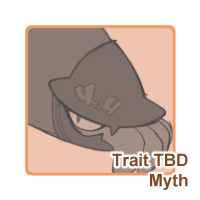Traits
[ Click here for Visual Sorter! ]
Object Growth (CCCats) (Myth)
Category: Body
Species: CCCats
[The design grows some form of object across its body]
- Covers one type of object even if that object has more than one material [Example: wires with plastic coating and metallic ends]
- Object Growth includes Object Tail Tip if the tail's object matches the object growth type.
- Objects with multiple parts to it such as chains or multiple materials may be used as long as those parts would naturally appear as part of that object [Example: A lantern may hang from a short chain, have glass paneling, and metal casing. It would not include extra inserts such as candles, but those could be added as accessories]
- If the object glows [Light Bulb] or is metallic [Bell], it can have those effects, but the design would still require those respective marking traits if they were to appear elsewhere on the body.
- Can simulate weapon impalement, but weapon cannot be removed
- This can affect or replace the crown with the same object type [Example: Wire growth with wire crowns]
- Can be used to ONLY affect the crowns
- Plant Growth on top of the body is classified in the following way:
- If a plant type falls under a category listed below, it can have multiple different plants within that type shown on the body with one instance [Example: Flowers may allow the user to have roses, daisys, and tulips with one instance of the trait]
- If a plant type would naturally allow for additional aspects of it, such as a flower with a specific type of leaves, the flower may include those leaves. This does not allow for leaves to then grow elsewhere/independantly, unless accompanied by the flower [Further Example: A branch may also have leaves on it if using a type of branch that includes leaves]
- If a plant is incredibly unique such as bamboo, it may be classified under its own section and allow depiction for what the plant would naturally show.
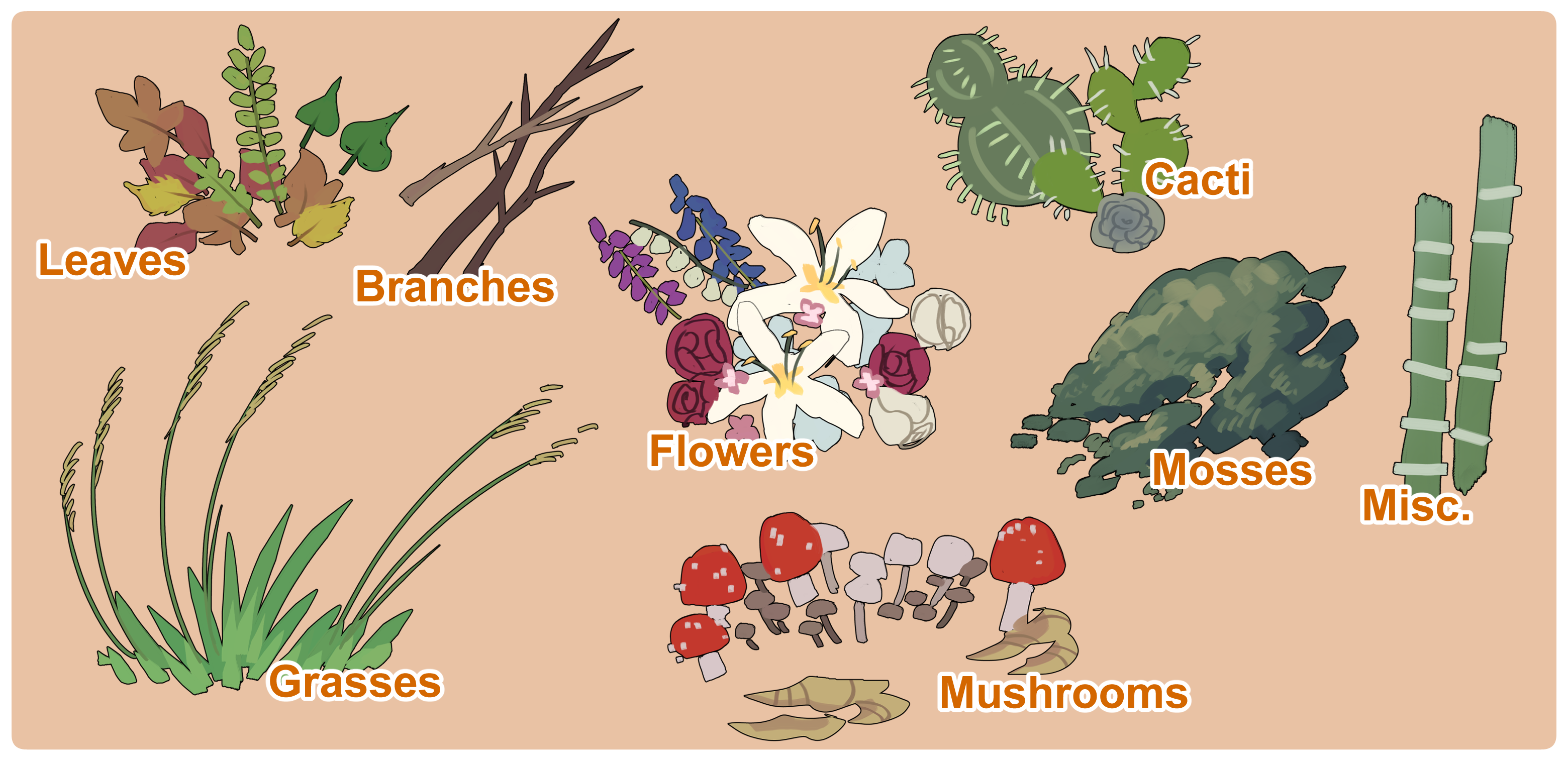
- Object growth should not replace an entire limb, and must appear as though its growing from the body rather than replacing it.
- Crowns cannot be replaced by plants or have plants growing on them with this trait
Can be applied by:
Object Growth (Crooks) (Myth)
Category: Body
Species: Crooks
[The design grows some form of object across its body]
- Covers one type of object even if that object has more than one material [Example: wires with plastic coating and metallic ends]
- Object Growth includes Object Tail Tip if the tail's object matches the object growth type.
- Objects with multiple parts to it such as chains or multiple materials may be used as long as those parts would naturally appear as part of that object [Example: A lantern may hang from a short chain, have glass paneling, and metal casing. It would not include extra inserts such as candles, but those could be added as accessories]
- If the object glows [Light Bulb] or is metallic [Bell], it can have those effects, but the design would still require those respective marking traits if they were to appear elsewhere on the body.
- Can simulate weapon impalement, but weapon cannot be removed
- Object growth can grow ON but not replace tendrils
- Object growth can replace knucklebones as long as a knucklebone is still represented via the object. Does not make all bones an object
- Plant Growth on top of the body is classified in the following way:
- If a plant type falls under a category listed below, it can have multiple different plants within that type shown on the body with one instance [Example: Flowers may allow the user to have roses, daisys, and tulips with one instance of the trait]
- If a plant type would naturally allow for additional aspects of it, such as a flower with a specific type of leaves, the flower may include those leaves. This does not allow for leaves to then grow elsewhere/independantly, unless accompanied by the flower [Further Example: A branch may also have leaves on it if using a type of branch that includes leaves]
- If a plant is incredibly unique such as bamboo, it may be classified under its own section and allow depiction for what the plant would naturally show.

- Object growth should not replace an entire limb, and must appear as though its growing from the body rather than replacing it.
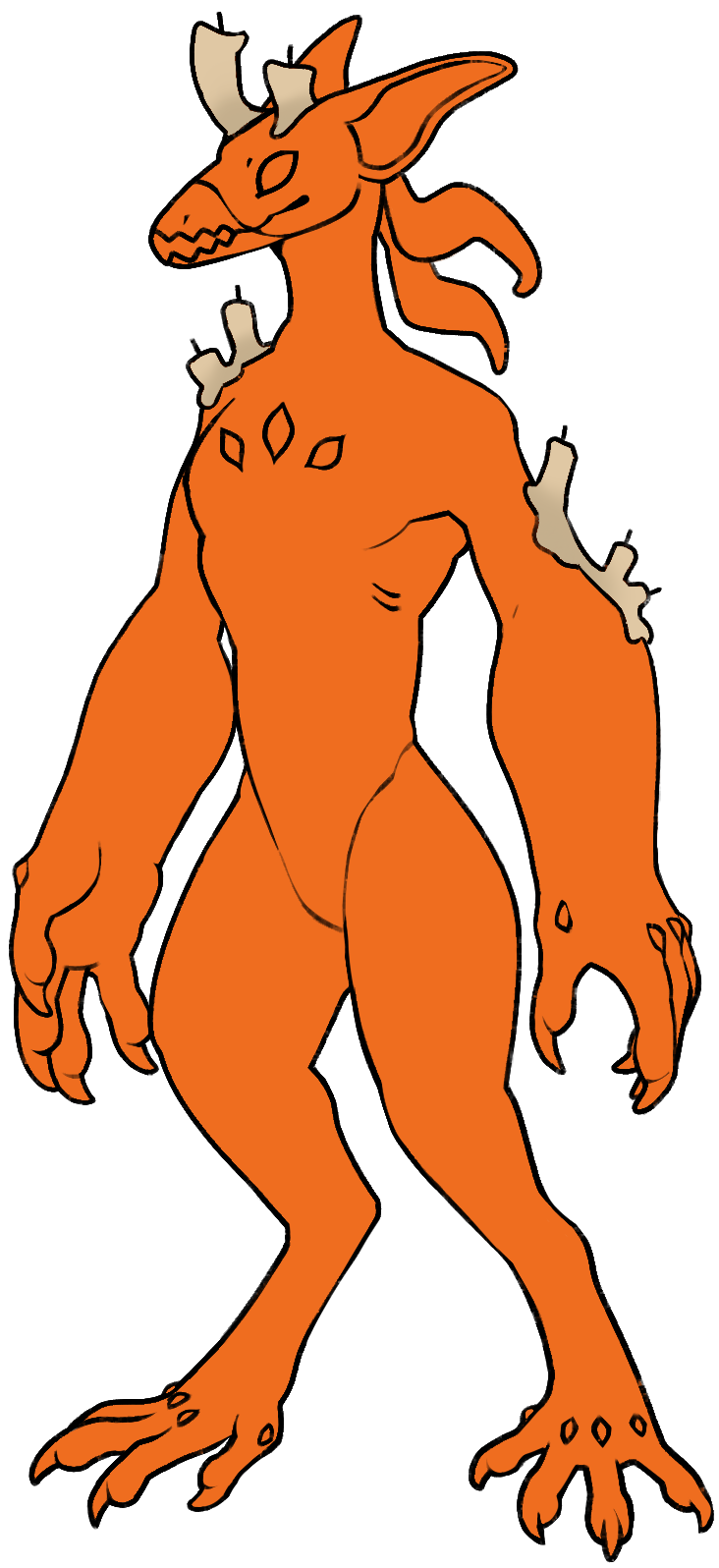
Can be applied by:
Object Growth (Gravents) (Myth)
Category: Body
Species: Gravents
[The design grows some form of object across its body. This covers one type of item, even if that specific item (ie: wires) has more than one material]
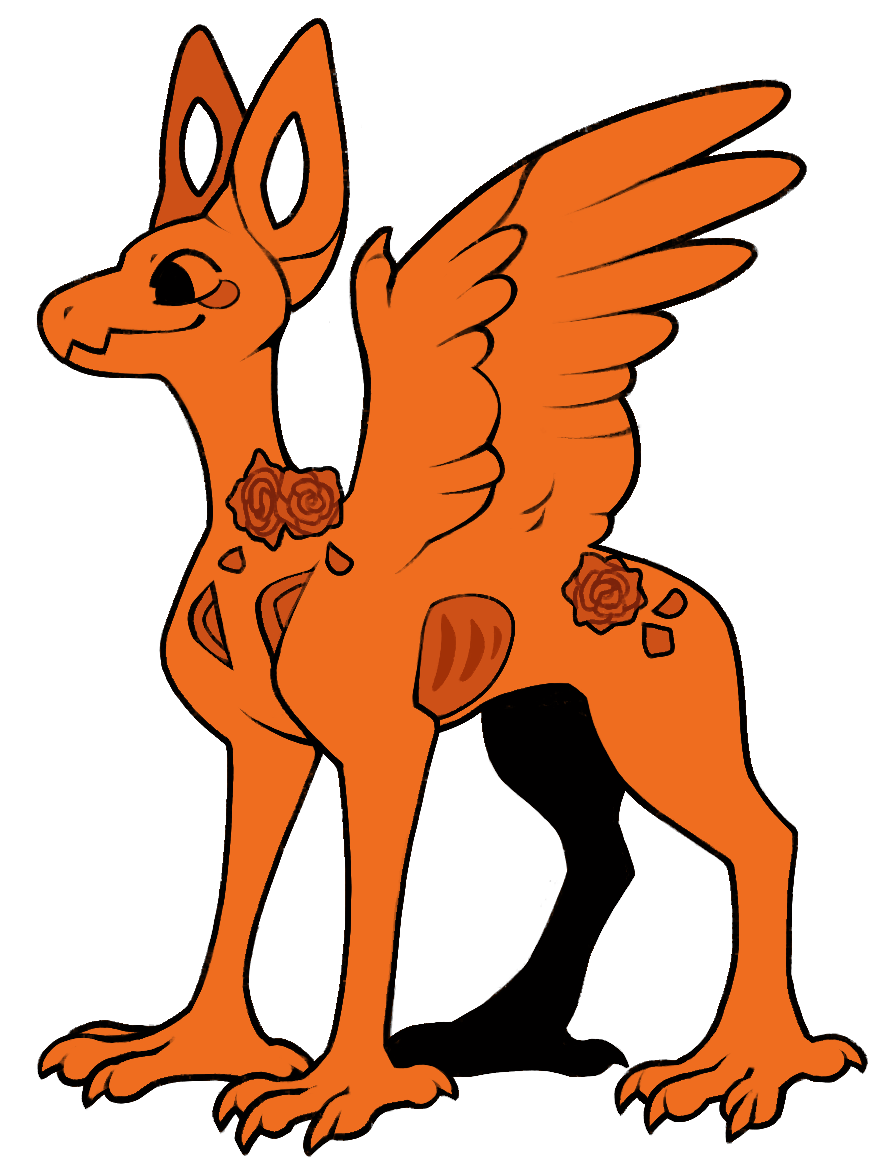
Can be applied by:
Object Growth (Nautipods) (Myth)
Category: Body
Species: Nautipods
[The design grows some form of object across its body (Helm, Shell, Soft Body). This covers one type of item, even if that specific item (ie: wires, bone) has more than one material]
Can be applied by:
4 results found.
